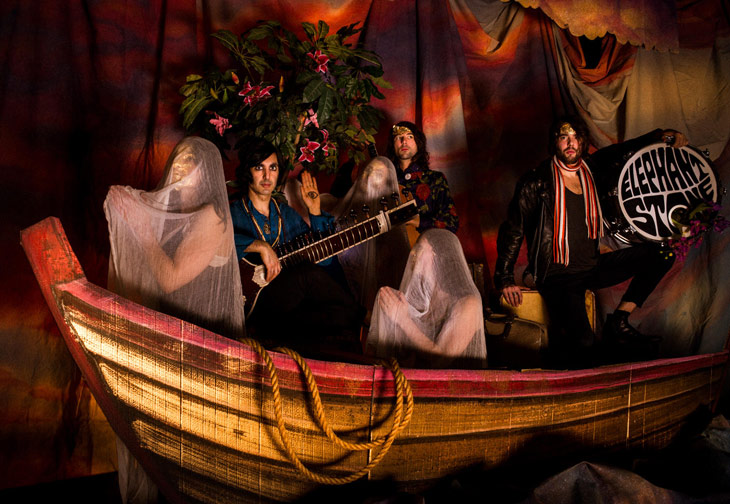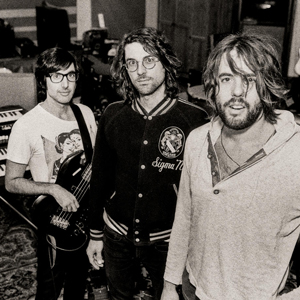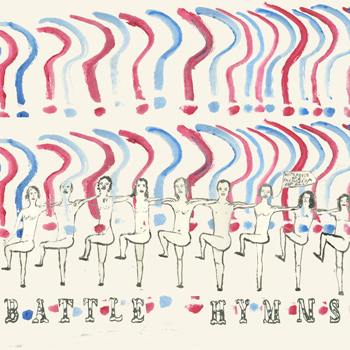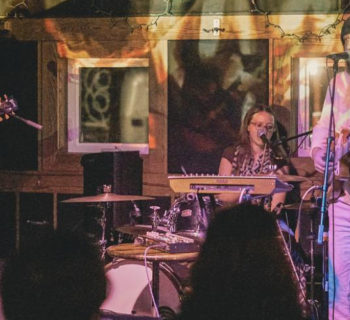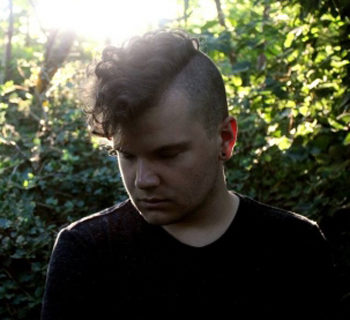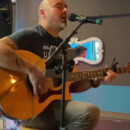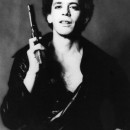Psych-rock band Elephant Stone was formed in 2009 by singer, bassist, songwriter, and sitar player, Rishi Dhir, who has played with Beck, The Brian Jonestown Massacre, The Black Angels, and The Horrors. In 2016 Elephant Stone (which also includes Miles Dupire on drums and backup vocals and Gabriel Lambert on guitar and backup vocals) released their fourth album, Ship of Fools, an album that blends rock with traditional Hindustani music and reminds many of the Beatles' more psychedelic musical experiments.
Rishi Dhir's first music school was his family. Born and raised in Brossard, Quebec, by Indian immigrant parents, his childhood was full of Indian music. His mother was a fine singer, and when the grownups gathered they always ended up singing old Bollywood favorites. It was Dhir’s older brother who brought rock into his life when he was about eight. Inspired to play along, he starting learning piano and later took up guitar. It wasn’t until 1997—at a cousin's wedding in India—that Dhir began to fully embrace Indian music and his cultural roots.
"I started exploring that stuff, wearing it on my sleeve, and kind of owning my heritage," he remembers. "As a first generation Indo-Canadian, I was trying to see where I fit in this culture that's very much divided between white and black, music-wise." In Montreal, Dhir found further guidance from sitar master Uwe Neumann, with whom he’s been studying the instrument for the last 15 years.
It wasn't long before he noticed the influence of Indian music on the history of rock, especially psychedelic rock, in the music of The Who, The Beatles, The Rolling Stones, Cream, and so on. Why does he think there's been such a strong Indian undercurrent in Western rock? "I guess it would be drugs," Dhir laughs. "If you smoke some weed or something, your mind definitely wants to hear something hypnotic that can carry emotions. Drugs did play a role in the Western discovery of music, because with that you kind of question existence. With the Beatles this is what brought them to The Maharishi. They were trying to destroy the ego."
Serendipity has traveled with Dhir on his musical journey. "We met the Black Angels in Austin, Texas," he explains," back before they were a band, and we became friends with them." This led to the Angels getting Dhir to record a song with them, which they then named after him. Before long he was a full-fledged band member. (Listen to Dhir's Black Angels sitar solo here.)
If you smoke some weed or something, your mind definitely wants to hear something hypnotic that can carry emotions.
When Dhir went to Australia with the Black Angels they were set to perform at the Harvest Festival in Sydney. Incidentally so was Beck, and when Dhir heard him play "Loser" without a sitar he knew it just wasn't right. He went to his band's soundman and said, “One week from today, I'm going to be on stage with Beck.” After some maneuvering he met Beck, whose response was simply, “I’ll see you on stage.” (watch Dhir play sitar with Beck on "Loser" in Sydney in 2012 here.) Beck was so happy with the performance that he asked Dhir to join him in Brisbane as well. Later when Beck came to Montreal, where Dhir now lives, Dhir played with him again at Osheaga.
"It’s a self-fulfilling prophecy in some ways; if I convince myself that things will happen, they will happen."
Dhir is now working on a side project with friends from The Horrors and The Black Angels, an album that’s likely to come out in 2018. He’s also started recording his first solo sitar record, Acid House Ragas, on which he plays his sitar along with sequence house beats and assorted psychedelic elements.
“I can see when I tour that people like the sitar,” he says. “I was in London talking to my promoter about how I was going to go about putting Acid House Ragas together, and his knee-jerk was, ‘I think that this is going to be bigger than Elephant Stone.’”
"There’s no one else doing it— that’s what’s interesting. I can easily say that no one is going to be making the record I’m going to make. That’s kind of cool."
Look for Elephant Stone in 2017 on tour in Europe and Canada.

